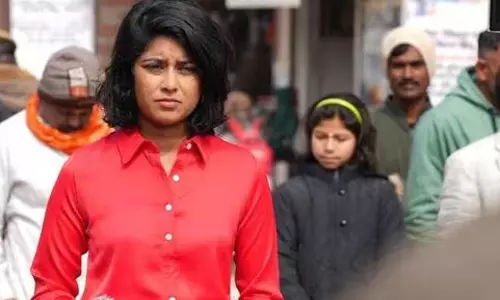
Freedom was not won through court proceedings
text_fieldsThe hearing at the Supreme Court on Wednesday on petitions challenging the Citizenship (Amendment) Act (CAA), devised with a clearly divisive agenda by the central government, was eagerly awaited by the people. It was but natural that a legislation, which triggered the widest and the most intense agitations ever since the freedom struggle, being subjected to judicial review, would attract so much public attention. But unfortunately, it was not in the spirit of realising the popular anxieties or grasping the realities of the country, but in the routine manner of dealing with an ordinary case that the Supreme Court considered it.
A total of 144 petitions had been filed in the apex court about the citizenship act. Out of this 142 were those challenging the law and pleading to declare it as unconstitutional. And for 60 of them, the court had earlier served notice on the Centre asking for the latter's response. Although the Centre's response was not presented before the court, the Attorney General informed the court that its response was ready. And the court's granting of another 4 weeks time, is for the Centre to respond to the petitions filed subsequently. The prayer in all 142 petitions is the same: CAA be declared unconstitutional. Therefore, the reply also would be the same. As such, it is strange that for such a response the court has granted another four weeks. It will be the same bench that will consider the case. And that is the time when the court will decide on the methods to hear the case and whether the case should be referred to a larger bench. Most importantly, the apex court declined to stay the law or to defer its implementation. In short, the court's decision will only serve to aggravate the unrest surrounding the CAA.
Although counsels for petitioners like Kapil Sibal and Abhishek Manu Singhvi pointed out that many states have moved to steps fo implementing CAA, the court did not consider that. And no answer was given to Sibal's question whether citizenship once granted could be revoked in the event of the court striking down the law. Singhvi also cited that in certain BJP-ruled states, CAA was being implemented even before rules were framed. He also made a bombshell disclosure in the court that in 19 districts of UP, 40 lakh citizens had already been included in the doubtful list. The honourable court did not give any response to that. It all gives a feeling that within four weeks liberally granted by the court, the BJP government would be able to implement all it wanted to accomplish. After all this, when the matter comes up for hearing again, it would be easy to raise a plea of fait accompli – that the law has been implemented, and it will be impractical to revoke the actions. The court's decision has opened wide the door for such an eventuallity. And it is unusual for the court to revoke a law after it has been put into effect. It is also worth recalling that this is a court that asked the students of Jamia Millia to 'first stop the strike and then come with the petition', in response to the students' plea for court's intervention when the police had thrashed them.
Everyone knows that the country today is living under a de facto autocratic system. And each day it is moving towards its perfection. This trend is eating into every organ of the body politic. A mind-set which suits that end has been created in the country too. In such circumstances, it may not be easy to expect the institution of judiciary alone to be immune to that mind-set. This is not to ignore the court's mention that the legal validity of CAA would be considered later, but only to highlight that it is not accidental for the court to decline to take a simple decision to put off the practical steps related to CAA . The decision in the Babri Masjid case alone will be enough to convince with what mind-set the court is functioning.
The agitation against CAA in fact marks the dawn of a paradigm shift in the history of India. It will be etched as the most inclusive people's uprising after the freedom struggle. It is not through court proceedings, but through people's interventions that we won freedom. So did the idea of India take birth. And it will be protected in the same manner.

















